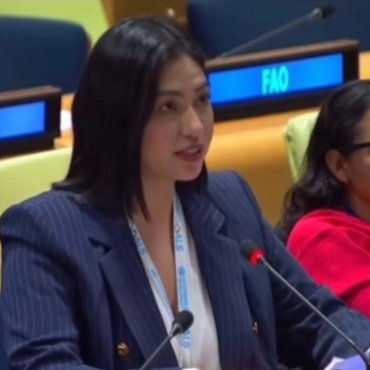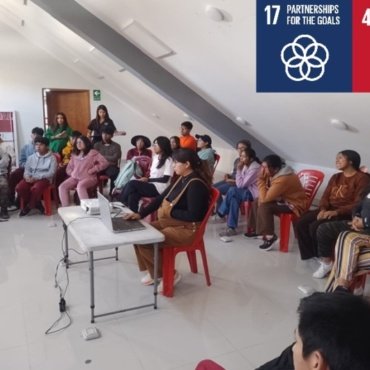Why is the Family a Cornerstone of Society? #Austria and Germany

On Wednesday, November 10, IAYSP Austria and Germany held an online event, “The family as the cornerstone of society”; with thirty people participating from Austria and Germany. IAYSP believes that families are the basic building blocks of society. We experience family as the first thing in our lives. Unfortunately, today the role of the family is not emphasized enough.
The first speaker, Hilde Wiemann, originally from Austria, has lived in the USA for forty years and works as a relationship coach and Real Love Coach. She highlighted that we have a core desire to belong to someone and that people love us, talk to us, and how we yearn for connection.
Family is the school of love where we experience our parents who love us; then we experience love with our siblings. Afterward, conjugal love and we become parents ourselves and, in the end, grandparents. This entire process is built upon love.
We should value the development of trust, values, responsibility, and problem solving. Even when we make mistakes, if seen from a positive perspective mistakes can be viewed as valuable learning experiences; and within the family, making mistakes is unavoidable. Time, touch, and talk are what we seek, which we can experience in the family. Nowadays, parents stop touching their children many times, do not hug them, and do not pat their shoulders because they believe the kids “do not want that anymore.” Wiemann highlighted that a healthy family needs traditions and rituals as well. They also need a safe environment in which to learn to effectively manage anti-social behaviour. It is essential that instead of talking, we learn to listen. The focus should be restoring families by keeping these points in mind.
The second speaker, Umair Ahmad, is a Young Muslim student (Culture and Social Anthropology) from Germany now living in Zürich. From a young age, he was interested in the topic of family. He mentioned that the family is the first institution and social unit (according to social sciences). He quoted from the Qur’an, “Between man and woman must be love.” The responsibility of people is to fulfil duties and rights, especially in the family. In the Qur’an, the people are called a big family. And it has several places where it mentions that men and women should revere each other, also focusing on the respect between parents and children.

The third and last speaker, Janine Förster (Managing Director of Das Relationship), has worked with families in crisis for about ten years. No matter what culture or beliefs families uphold towards, parents truly love their children. However, many families experience many challenges and struggles. They try to address their issues and have often tried many approaches, but still require support. Through consistency and with love, even attachment-related problems can be solved. It is important to remember that there are no perfect families – there are always issues to solve, but a lot depends on how those issues are handled and whether they are handled at all. People think to themselves, “How am I going to raise my child? I cannot hit them, I cannot yell anymore, so what can I do?” It is also crucial to analyze the role of husband and wife in the family. She mentioned that the main problem is that many people are disoriented.
Afterwards group discussion occurred where the MC asked the overarching question to participants, “Are you satisfied with the role of the families in our society today?”
The panellists later replied that it would be beneficial if the topic would be addressed earlier in children’s lives and course of development. There is also a tendency to blame others for one’s problems, and many are not open to new points of view; one only tries to “protect” themselves. The speakers mentioned that we live in a time where rules are seen more and more as restrictions, and every restriction is viewed negatively. If a child feels, for instance, that the parents’ career is more important than he/she is, then they notice it very strongly and pursue love somewhere else.
After a lively group discussion, findings were presented.




